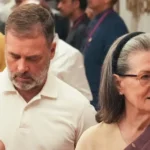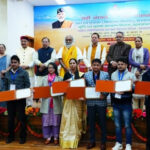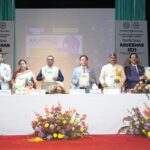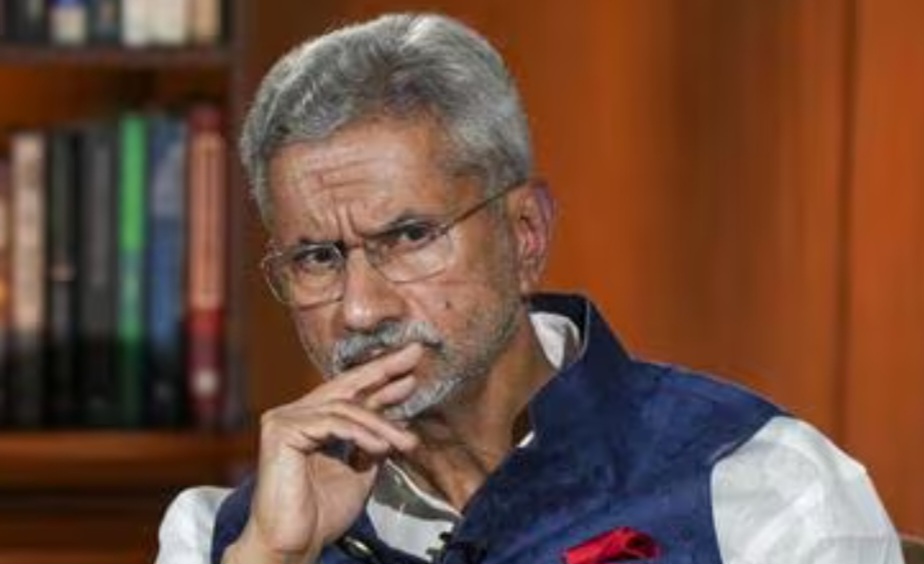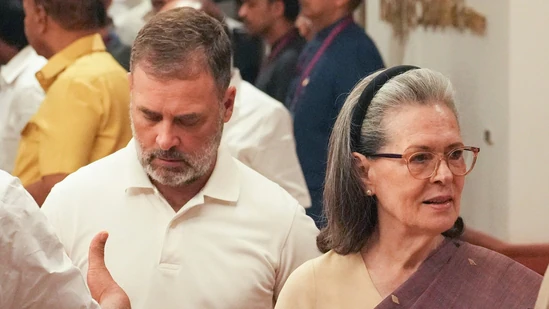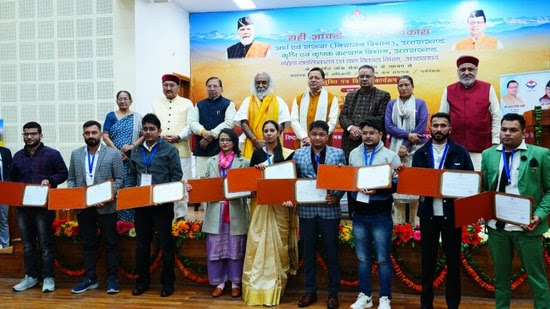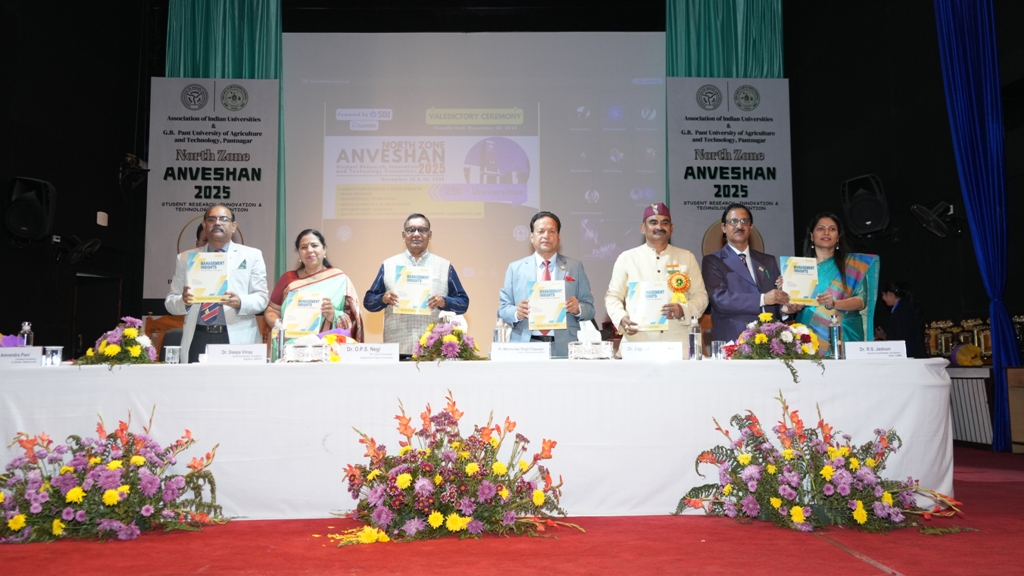Himalaya Harbinger, Rudrapur Bureau
India announced on Friday that external affairs minister S Jaishankar will visit Pakistan this month to attend a key meeting of the Shanghai Cooperation Organisation (SCO), making him the first foreign minister to travel to the neighbouring country in nearly a decade — a visit that could mark a milestone in relations between the two countries though there was no word on any bilateral engagement during the day-long trip.
Jaishankar will head the delegation that will represent India at the meeting of the SCO Council of Heads of Government to be held in Pakistani capital during October 15-16, external affairs ministry spokesperson Randhir Jaiswal told a media briefing, ending speculation about the level of India’s participation in the upcoming meet.
The external affairs minister will lead our delegation to Pakistan to participate in the SCO Summit, which will be held in Islamabad on October 15-16,” Jaiswal said in response to a question.
Late former external affairs minister Sushma Swaraj visited Islamabad in December 2015 for a meeting of the “Heart of Asia” format, a security conference focused on Afghanistan, and held talks with senior Pakistani leaders. The last high-level ministerial visit to Pakistan was when Rajnath Singh, in his former role as home minister, attended a meeting of the South Asian Association for Region Cooperation (Saarc) in August 2016
Days after Swaraj’s visit to Islamabad in 2015, Prime Minister Narendra Modi made a surprise stopover in Lahore, while returning home from a trip to Afghanistan, to wish then Pakistani premier Nawaz Sharif on his birthday on December 25. This was also the first visit to Pakistan by an Indian premier in 11 years. However, bilateral ties were hit soon after by a string of attacks on Indian military facilities by Pakistan-based Jaish-e-Mohammed (JeM).
There have been a few visits by Indian and Pakistani officials to each other’s countries in recent years for Saarc or SCO-related meetings or for meetings under the aegis of the Indus Waters Treaty. Former Pakistani foreign minister Bilawal Bhutto Zardari visited Goa last year to attend a meeting of SCO foreign ministers, which was marked by Jaishankar’s blistering attack on Pakistan for supporting terrorism after Bhutto Zardari made remarks critical of India during a media interaction.
Jaiswal declined to give details of the itinerary of Jaishankar’s visit to Pakistan, saying there is “no clear idea at this point of time” regarding plans for bilateral meetings on the margins of the SCO gathering. “This visit is for the SCO Summit meeting, nothing more should be read into it,” he said, while replying in Hindi to a question.
Pakistan invited Modi for the meeting of the SCO Council of Heads of Government, which is the second highest decision-making body of the grouping.The Prime Minister usually attends only the SCO Summit or the meeting of heads of state.
The Indian side has usually sent the foreign minister to meetings of the SCO Council of Heads of Government, though there were some doubts whether Jaishankar would attend this year’s meet in view of the fraught ties between India and Pakistan.
The SCO is one of the rare multilateral organistions where India and Pakistan have continued to work together despite the complete collapse of bilateral dialogue after the 2008 Mumbai terror attacks carried out by the Pakistan-based Lashkar-e-Taiba. This is largely because the SCO Charter doesn’t allow the raising of bilateral issues.
The other member states in SCO are China, Russia, Iran, Kazakhstan, Kyrgyzstan, Tajikistan, and Uzbekistan.
Former ambassador Ajay Bisaria, who was India’s last high commissioner to Islamabad and closely tracks relations between the two countries, said New Delhi has made a “bold move” by deciding to send Jaishankar to attend the SCO meeting.
“India has signalled its desire to stabilise the troubled relationship by sending its foreign minister to the SCO meet. The ball is now in Pakistan’s court and it must seize the opportunity and propose a meaningful bilateral meeting,” he said.
The strains in India-Pakistan ties were evident in Jaiswal’s responses to other questions during the same media briefing. Responding to a question from HT about controversial Islamic preacher Zakir Naik, who is wanted in India, visiting Pakistan, Jaiswal said: “We have seen reports that he is being feted in Pakistan, he has been warmly welcomed there. It is not surprising for us. A fugitive from Indian law [and] justice has received a high-level welcome in Pakistan – it is something that is disappointing, condemnable but at the same time, as I said, it is not surprising
Naik, 58, is wanted in India for alleged involvement in money laundering and inciting extremism through hate speeches. After he fled India in 2016 and became a permanent resident of Malaysia, his Indian passport was revoked. Naik arrived in Pakistan on Tuesday for a month-long tour and met Pakistan Prime Minister Shehbaz Sharif in Islamabad on Wednesday.
Jaiswal said India’s request for Naik’s extradition is pending with Malaysia and it was not clear what documents he is using to travel. The extradition issue was raised when Malaysian Prime Minister Anwar Ibrahim recently visited India.
In response to another question about Dhaka and Islamabad seeking the revival of Saarc, which has been moribund since New Delhi pulled out of a planned summit in Pakistan in 2016, Jaiswal sought to blame Pakistan for holding up regional cooperation.
“We attach deep importance to regional cooperation, to regional connectivity. Therefore, we have given impetus to Bimstec. On Saarc, as you know, we want to strengthen regional cooperation but you are well aware of the reason as to why this particular cooperation in that format is not moving forward. One particular country has a particular way of doing things, which is stalling Saarc,” he said, without naming Pakistan.
